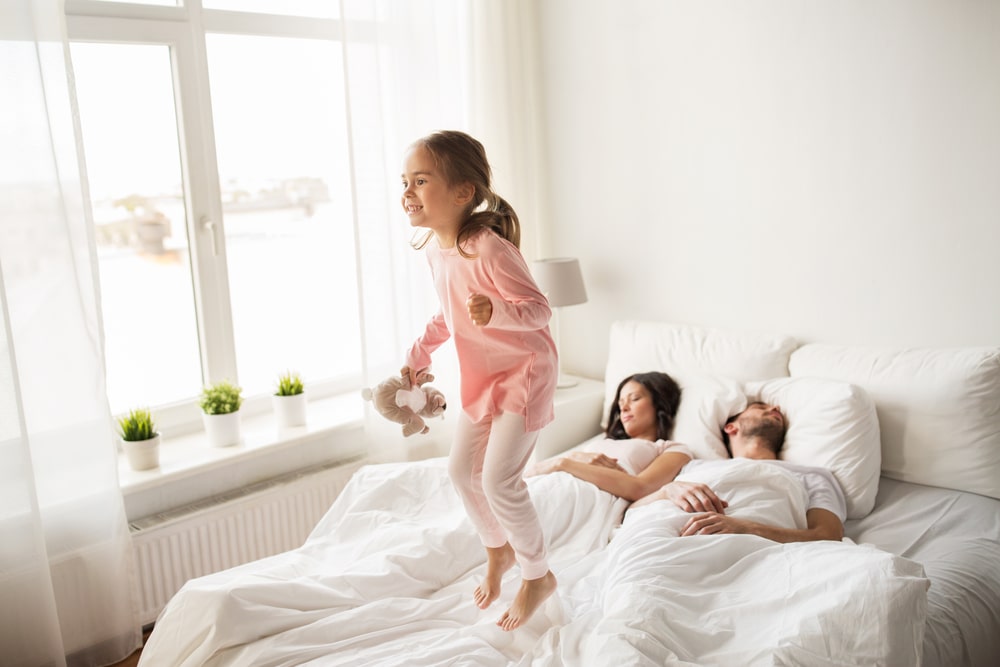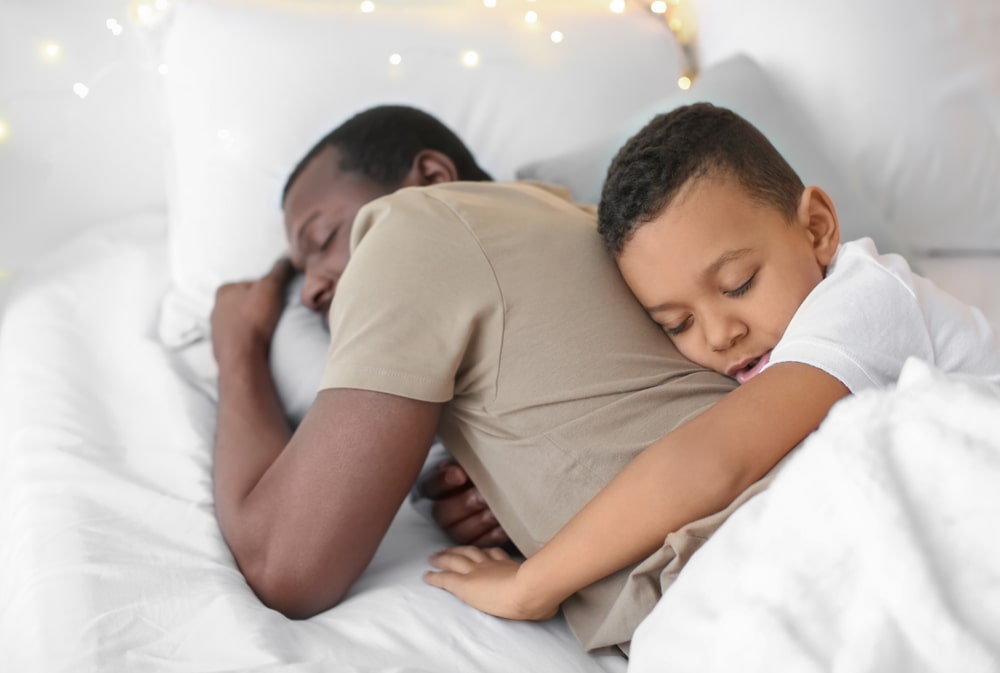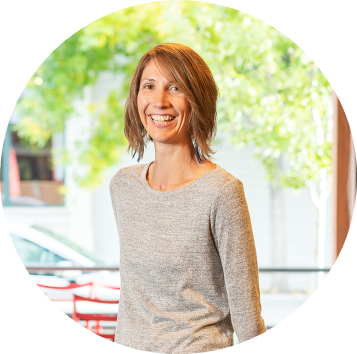We all know that parenting a newborn is guaranteed to lead to some sleepless nights. But new research suggests parents may deal with sleep loss well past the infant stage. In fact, they may be signing on for at least six years of disrupted sleep and less satisfying sleep overall.
The study, which was published in the journal Sleep, examined sleep duration and satisfaction among parents pre-pregnancy, during pregnancy, and postpartum. They found that while all parents experienced sleep disruptions for up to six years after their child’s birth, these effects were especially pronounced among new parents.
“First time parents tend to worry more and are going through the motions for the very first time,” Dr. Nikola Djordjevic, doctor of medicine and project manager at MedAlertHelp, told Mattress Clarity via email. “They are still trying to get their bearings, so to speak. Parents who already have kids pretty much already know what to do. They don’t get flustered every time their baby cries, and they know they don’t need to get up every five minutes just to check. It basically boils down to experience.” (Mattress Clarity also reached out to the study’s lead authors but has yet to hear back.)
While every child and every parent is different, this study makes one thing abundantly clear: Children can wreak havoc on our sleep well past their infancy. Here’s a closer look at this study’s takeaways.
New Parents And Sleep Deprivation
The study, which was conducted by researchers at the University of Warwick, followed 4,659 parents between 2008 and 2015. Participants included 2,541 women and 2,118 men; these parents provided info about their first, second, or third child. (It is unclear whether the study included non-heterosexual or non-cis couples.) Participants shared information about their sleep in annual interviews each year for the study’s duration.
Here’s an overview of what the researchers found:
- In the first three months after they gave birth, mothers experienced approximately one hour less of sleep each night compared to pre-pregnancy. The researchers speculated that mothers lost more sleep than fathers because women are more likely to serve as a child’s primary caregiver. Additionally, breastfeeding mothers were more likely to lose more sleep than bottle-feeding mothers.
- During the first three months after their child’s birth, fathers experienced a 15-minute loss of sleep each night.
- The first three months postpartum also represented a sharp decline in sleep satisfaction among both women and men.
- Even after children grew to between four and six years old, mothers were still losing approximately 20 minutes of sleep each night, while fathers held steady at a loss of 15 minutes per night.
- The impact of children on sleep was more significant among first-time parents compared to parents who had already had other children.
- Factors such as age, income, and dual versus single parenting did not seem to affect sleep duration or satisfaction.
All told, parents experienced sleep disruptions and remained somewhat unsatisfied with their sleep from their child’s infancy up until the age of six. But of course, this number may vary depending on individual circumstances.
“Some parents face this for even more than six years, depending on their situation,” Djordjevic says. “Parents of children with special needs, for example, [may not] get a good night’s sleep for the rest of their lives because they will… worry about the needs of their child and some even have to get up often to see if their kid is comfortable.”
In general, though, Djordjevic says it makes sense that sleep tends to improve for parents when their children reach preschool age.
“This positive change can be attributed to the fact that kids in this age group already have an established sleep pattern and are or have already been transitioned to sleeping on their own beds,” he says. “This significantly lessens the amount of disruption on the parents’ sleep schedule. In addition, parents themselves have already adjusted to parenthood and have also established a schedule that allows them to get enough sleep while still [meeting] all of their children’s needs.”
RELATED: A Parents’ Guide To Helping Children Sleep
How Parents Can Improve Their Sleep
For new or experienced parent struggling to get enough sleep, there are several strategies that can help to maximize the sleep parents do get, Dr. Kent Smith, DDS, D-ABDSM, clinical director at Sleep Dallas and president of the American Sleep & Breathing Academy, told Mattress Clarity via email. Those strategies include:
- Turning the bedroom into a sanctuary. “Eliminate all light that could cause potential disturbances, including bedside lamps and nightlights,” Smith says. “Not only should the room be sufficiently dark, but the temperature should be between 60 and 67 degrees Fahrenheit and the environment should be as quiet as possible.”
- Avoiding stimulating projects before bed. “Leave PTA projects, emails, social media, and the latest episode of Paw Patrol behind, and focus on a more relaxing activity like reading or listening to music,” Smith says. “Anything with a screen should be avoided, as the light in your device can cause sleeping difficulties by convincing your brain that it’s daytime.”
- Watching what one drinks. “Although you feel like you might need an extra cup of coffee (or five) to keep up with the demands of parenthood, too much caffeine too late in the day can keep you up all night,” Smith says. “Try to keep caffeine consumption to the morning.”
- Staying active. “Walking to the park or taking a family bike ride can reduce stress and anxiety, and can help relieve sleep difficulties,” Smith says.
- Writing down one’s thoughts. “If you have trouble sleeping because your mind is too cluttered with worry or things you need to accomplish, write down a to-do list for the next day or journal your feelings,” Smith says. “This can help relieve your mind of unwanted thoughts.”
All told, Smith says, it’s essential for parents to capitalize on any opportunity they have for sound sleep. “Sleep time is in short supply, so make sure there isn’t anything else hindering the sleep you do get.”
Featured image: Marcos Mesa Sam Wordley/Shutterstock
[Editor’s Note: The content provided on this site is for general informational purposes only. Any information provided is not a substitute for professional medical advice. We encourage individuals to consult with the appropriate health expert if they have concerns.]



